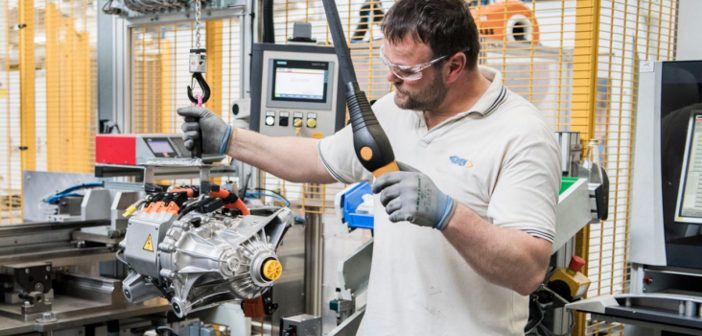
The industrialists who paid £8bn this year to buy GKN, the historic British engineering group, are courting pension buyout firms to take on a big chunk of its pension liabilities.
Sky News has learnt that Melrose Industries has opened talks with a number of insurers specialising in pension risk transfer (PRT) transactions about offloading the smaller of GKN’s two retirement schemes.
The discussions have been going on for several weeks and are understood to involve firms including Aviva and Scottish Widows, which is owned by Lloyds Banking Group.
Sources close to the situation said on Friday that Melrose would only strike an agreement to offload the GKN fund, which has liabilities of about £500m, if it could secure an attractive price.
In a statement to Sky News, a Melrose spokesman said: “Melrose has pledged to inject £1bn into the former GKN pension funds.
“That pledge will be met regardless of any other measures, such as buyouts from specialist providers to enhance the pensioner covernant.
“Any deal would depend on pricing.”
Even if it does proceed with a deal, Melrose will still hold the larger of GKN’s two pension schemes, which became a flashpoint in the hostile takeover of the 250-year old automotive and aviation group earlier this year.
Melrose eventually promised to inject up to £1bn of cash into the GKN schemes, which collectively have roughly 32,000 members.
The pledge included a formula which guarantees the retirement pots 10% of the proceeds from any disposal of GKN assets and 5% from other Melrose businesses.
So-called PRT deals have soared in popularity in recent years as blue-chip companies such as the music group EMI, Rolls Royce Holdings, and WPP, the marketing services group, have sought ways to cap their financial obligations to past employees.
Sky News revealed in June that Melrose would kick off the first significant GKN asset sale in September by auctioning its Powder Metallurgy.
Rothschild and Jefferies, the investment banks, have been given the mandate to handle the process.
The Powder Met division makes high-performance components for automotive and industrial applications through two main divisions, but has no major operations or customers in the UK.
It manufactures for 3,000 customers around the world, producing 13 million parts every day, and could be worth around £2bn.
Melrose’s £8bn raid on one of British industry’s most famous names triggered a political firestorm which abated only when Greg Clark, the business secretary, secured binding undertakings from the Melrose board about their stewardship of GKN assets.
Under the terms of its deal with the government, Melrose must give ministers “early visibility” of potential bidders for any GKN operations with national security implications.
Mr Clark or his successors would also have a veto over any such sale.
Melrose also offered a number of other commitments such as retaining GKN’s aerospace division for at least five years, and maintaining research and development spending at pre-takeover levels.
The team of businessmen who founded Melrose have enjoyed huge success with their approach of buying, improving and selling poorly performing industrial businesses.
However, their hostile bid for GKN was on an altogether different scale to any of their previous acquisitions.
GKN’s board, led by the City veteran Mike Turner, claimed that Melrose’s team had insufficient expertise or long-term focus to manage aerospace and automotive businesses with global customers such as Airbus and Jaguar Land Rover.
Melrose also plans to sell other GKN businesses such as Off-Highway Powertrains and a unit which manufactures wheels.
A fractious battle came to an end in March, when just over 52% of GKN’s investors voted in favour of the deal.
The tussle generated more than £100m in bankers’ fees, while Melrose has pledged to eliminate GKN’s pension deficit with up to £1bn in contributions over the next five years.
Earlier this week, The Times reported that Melrose had postponed the sale of Ergotron, another of its businesses, because its chief executive is ill.
Insiders dismissed as “nonsense” the suggestion in other media reports that the postponement would jeopardise Melrose’s ability to honour its commitments to the GKN pension schemes.
From – SkyNews

